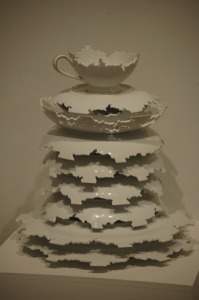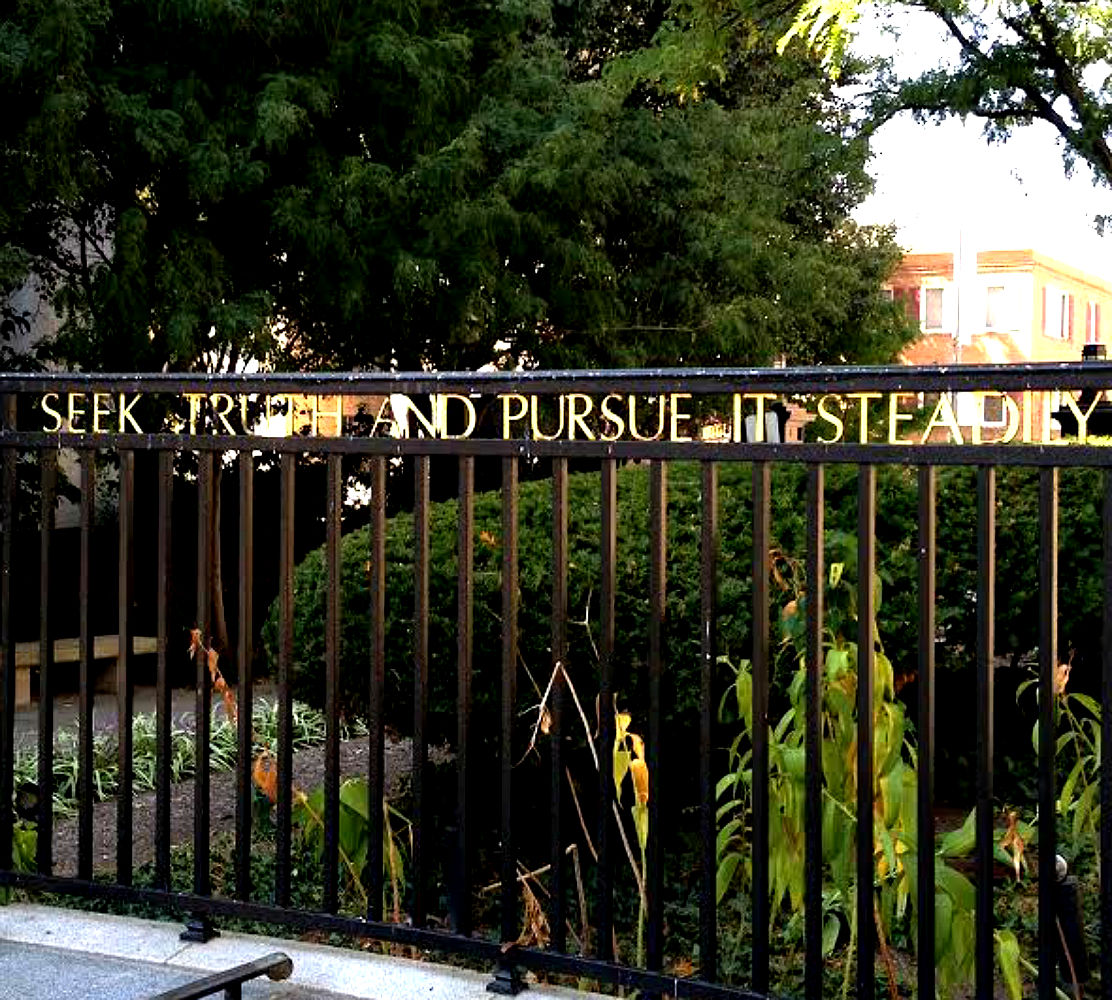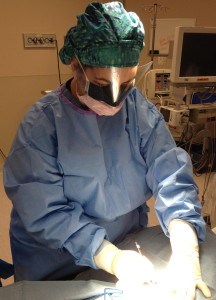“You are human and fallible.” -Charlotte Bronte, Jane Eyre
“Alas, the frailty is to blame, not me – for such as we are made of, such we be…” -William Shakespeare, Twelfth Night
“Sha-doo-bee, Shattered…” -Mick Jagger, “Shattered”, The Rolling Stones, Some Girls (1978)

“Heirloom”, cut china, artist, Elizabeth Alexander
It seems incongruent, an oxymoron, even slightly disloyal, to refer to surgeons as fragile. Preposterous.
The Image of the Surgeon is synonymous with strength. Surgeons are stereotypically charismatic, commanding, confident, even arrogant. Strong minds, strong bodies, strong wills. Leaders, especially in the operating room; they even act that way in other healthcare teams and committees, even if it is not their official role. Surgeons endure long hours, grueling surgeries, all in addition to full office and clinic loads, and inpatient hospital census numbers on par with their non-surgical colleagues. It is intellectually, physically, and emotionally challenging work. Surgeons seem to relish it, thrive on it.
This is exactly why surgeons are so fragile. All of them.
I had an epiphany at the end my 4th year of medical school, when we were in small group seminars dealing with aspects of life beyond graduation. I don’t even recall what that session was about. But I remember clearly that it struck me quite suddenly exactly how physical my chosen field of surgery really was. That, unlike my friends and classmates who were heading towards other fields, my ability to do my job as a surgeon was going to depend not just on my will and intellect, but on sheer physicality and functioning senses.
A surgeon has to be able to stand at the operating table; both hands and arms need to function. Senses have to work — vision, hearing, speech, touch. Unfortunately, smell too. (I wish I had known about smell, although it probably would not have deterred me, just prepared me.) I realized it is a very, very physical job. Losing the function of any one sense or limb could alter the ability to operate, the ability to be a surgeon. Internists can still practice from wheelchairs or with accommodation for myriad physical or sensory impairments. Other specialties that perform procedures retain their full professional identity and ability to continue in those fields, even with limited ability or inability to perform.
But, what is a surgeon who doesn’t operate? Continue reading →




